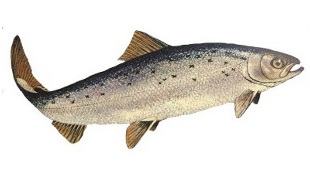 WIKIMEDIA, NOAAResearch and development into genetically modified (GM) or genetically engineered (GE) animals for food production is arguably one of the most controversial scientific topics capturing the public’s attention these days. Even a cursory scan of popular media on the topic would suggest an ongoing, highly polarized debate about the impact GE animal biotechnologies stand to have on the world.
WIKIMEDIA, NOAAResearch and development into genetically modified (GM) or genetically engineered (GE) animals for food production is arguably one of the most controversial scientific topics capturing the public’s attention these days. Even a cursory scan of popular media on the topic would suggest an ongoing, highly polarized debate about the impact GE animal biotechnologies stand to have on the world.
In one corner, the pro-GE camp maintains that such biotechnologies will only provide positive benefits to society. This group suggests that GE animals can save both producers and consumers money, provide more nutritious animal food products, provide better access to such nutritious products, and increase the health and wellbeing of the animals used in food production. Ostensibly, the pro-GE camp views genetic biotechnologies as continuing the long legacy of scientific innovation enriching the human experience.
Opposing this view is the anti-GE camp, which maintains that the fusion of corporate self-interest and irresponsible scientific acumen could be a recipe for unintended negative consequences. This group suggests that there are potentially serious environmental and human health risks associated with GE animals that are not being taken seriously. ...



















